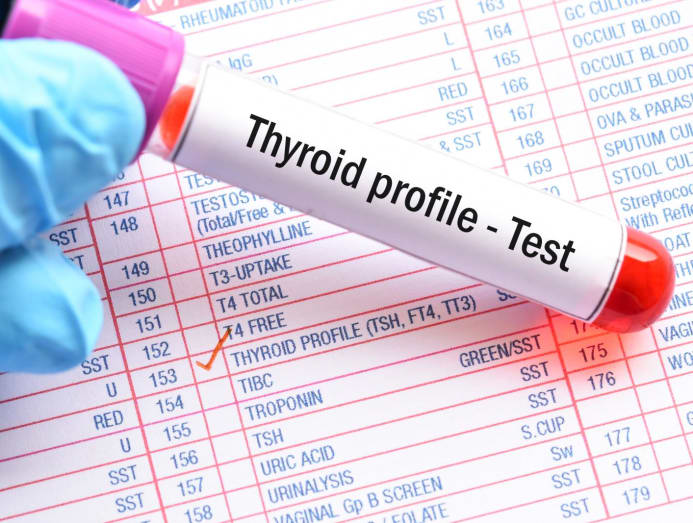Premarital health screening: Why you and your fiance should go for a check-up before you get married
Once you decide to get married, you might create a to-do list so that your journey towards your wedding day is a smooth one. One thing couples might want to add to this list is getting a premarital health screening.
This helps ensure you get to enjoy a long, healthy life together and prepares you for any medical issues that might crop up in the future, especially if you’re planning to have children.
Dr Teo Cheng Rong, a family physician at Healthway Medical, explained that premarital health screening differs from regular health screening because it focuses on conditions that may impact fertility, pregnancy and the health of the unborn child.
Dr Irene Gay, in-house general practitioner at HealthConnexion at Farrer Park Medical Centre, said that in regular health screenings, “the focus is on detecting chronic diseases like high cholesterol, diabetes and/or cancers”.
Premarital health screenings involve tests to assess key health factors that could impact a couple’s future together, said Dr Jessica Beh, a general practitioner at DTAP Clinic.
These include tests for sexually transmitted diseases (STDs), genetic blood disorders, fertility health and other potentially serious medical conditions – particularly if there is a significant family history of them.
“Many of these health issues – such as blood issues like thalassaemia – often fly under the radar, making them unknown to couples without proper testing,” she told CNA Women. Thalassaemia is a genetic condition that can lead to low red blood cell counts and other complications.
NOT JUST FOR FAMILY PLANNING
Premarital health screening is not just for couples who intend to have children.
Dr Teo explained that some conditions detected through the screening, such as infections, can be transmitted during sexual intercourse. Early detection is crucial to prevent potential health risks and ensure both partners remain informed about their health status, whether or not they plan to start a family.

Dr Gay cited the example of hepatitis B – if the husband is found to be a carrier through such a screening, it’s important to ensure that his partner is vaccinated against it.
She noted that such screenings ensure women can maximise the likelihood of conceiving and having an uneventful pregnancy. They could also pick up conditions like anaemia or thyroid issues that will need to be evaluated and managed, irrespective of pregnancy.
There are non-health aspects to consider too. Going for a screening helps foster honest communication between couples regarding their health status and allows for a deeper and more meaningful relationship, said Dr Beh.
“A couple’s physical and mental well-being play a vital role in their ability to provide emotional support, maintain intimacy and handle life’s ups and downs together,” she said.
“Even in the strongest relationships, serious health conditions – which can be uncovered through such screenings – can introduce unforeseen challenges that may feel overwhelming.”
Therefore, getting visibility on these aspects of health – away from just planning for a child – gives couples the runway to tackle potential challenges head on and overcome health trials together, Dr Beh added.
Dr Gay recommended that ideally, a premarital health screening should take place at least nine months before the wedding. This will allow enough time to address any issues identified, including receiving treatment or getting a full course of vaccinations.
WHAT TESTS ARE INVOLVED
The costs of premarital health screening varies. Of the three clinics CNA Women spoke to, prices can range from S$140 per person to just over S$500 per couple.
The tests included vary between clinics and some only offer individual plans while others provide couple packages. Most clinics also allow you to top up if you want to include other tests such as HIV or a semen analysis, the most common male fertility test which tests for sperm count and quality.

For example, some clinics, such as Healthway Medical, test for thalassaemia. If both partners are carriers or have thalassemia, genetic counselling may be recommended due to the increased risk of passing the condition to the child, said Dr Teo.
“Tests for hepatitis B and C, HIV and syphilis are part of the screening, as these infections can be transmitted through sexual contact or blood transfusions. If detected early, treatment options can reduce the risk of transmission to the partner or baby,” he added.
For women in particular, two tests are essential: A rubella antibody test and thyroid screening.
If contracted during pregnancy, rubella (or German measles), can cause serious birth defects. Dr Teo said that vaccination before conception is an effective way to protect both mother and baby.
At the same time, “abnormal thyroid hormone levels can impact fertility and pregnancy, increasing the risk of complications for the mother and baby”, hence, the need for thyroid screening.

At another clinic that CNA Women spoke to, DTAP Clinic, basic premarital packages screen for the likes of syphilis, thalassaemia, hepatitis B and rubella, with chlamydia, gonorrhoea and HIV as optional add-ons. Couples who are considering getting pregnant can also add on fertility testing.
During a premarital health screening consultation at HealthConnexion, the doctor takes a detailed history from the patient and, based on this and the patient’s background, may recommend additional blood tests, swabs or imaging studies.
“For example, a pelvis ultrasound can also be considered to pick up conditions that may cause sub-fertility,” said Dr Gay.
INVESTING IN YOUR LONG-TERM WELL-BEING
If you’re keen on getting screened but your partner is hesitant, the doctors agree that women should still get it done just for themselves.
Dr Beh said the screening aids with understanding health matters, offering insights to health risks and underlying conditions that may impact the family or future children on a personal level.
“Getting screened also reduces the risk of severe health complications due to late diagnosis of certain conditions, which could be a factor in terms of finances, relationship expectations and, of course, family planning,” said Dr Beh.
“It is a responsible step to take, in doing her part to ensure there is transparency in health pertaining to the relationship,” she added.

Dr Beh encouraged couples to sign up for premarital health screening as taking “a proactive approach through health screenings is an investment in their long-term well-being and happiness”.
Also, if conception is not an option after getting the necessary information from a screening, these expectations may need to be re-evaluated, which can impact the relationship. Addressing health concerns early enables couples to adapt and build a strong foundation for a stable and fulfilling partnership, she added.
Dr Teo said it’s “a responsible step in protecting your health and the health of your future family”.
“Prevention is always better than cure and screening offers peace of mind as you embark on your family planning journey,” he added.
Dr Gay said that couples tend to get married later in life these days and, even without health issues, fertility naturally decreases with age. Some couples try for years to get pregnant, only to discover that they had correctable conditions that made pregnancy difficult.
“By then, their fertility may be poor or they would be at high risk for adverse pregnancy outcomes or maternal complications due to their age,” she added. “Early screening and treatment of health issues could have helped them conceive naturally earlier.”
CNA Women is a section on CNA Lifestyle that seeks to inform, empower and inspire the modern woman. If you have women-related news, issues and ideas to share with us, email CNAWomen [at] mediacorp.com.sg.
Disclaimer: Investing carries risk. This is not financial advice. The above content should not be regarded as an offer, recommendation, or solicitation on acquiring or disposing of any financial products, any associated discussions, comments, or posts by author or other users should not be considered as such either. It is solely for general information purpose only, which does not consider your own investment objectives, financial situations or needs. TTM assumes no responsibility or warranty for the accuracy and completeness of the information, investors should do their own research and may seek professional advice before investing.
Most Discussed
- 1
- 2
- 3
- 4
- 5
- 6
- 7
- 8
- 9
- 10